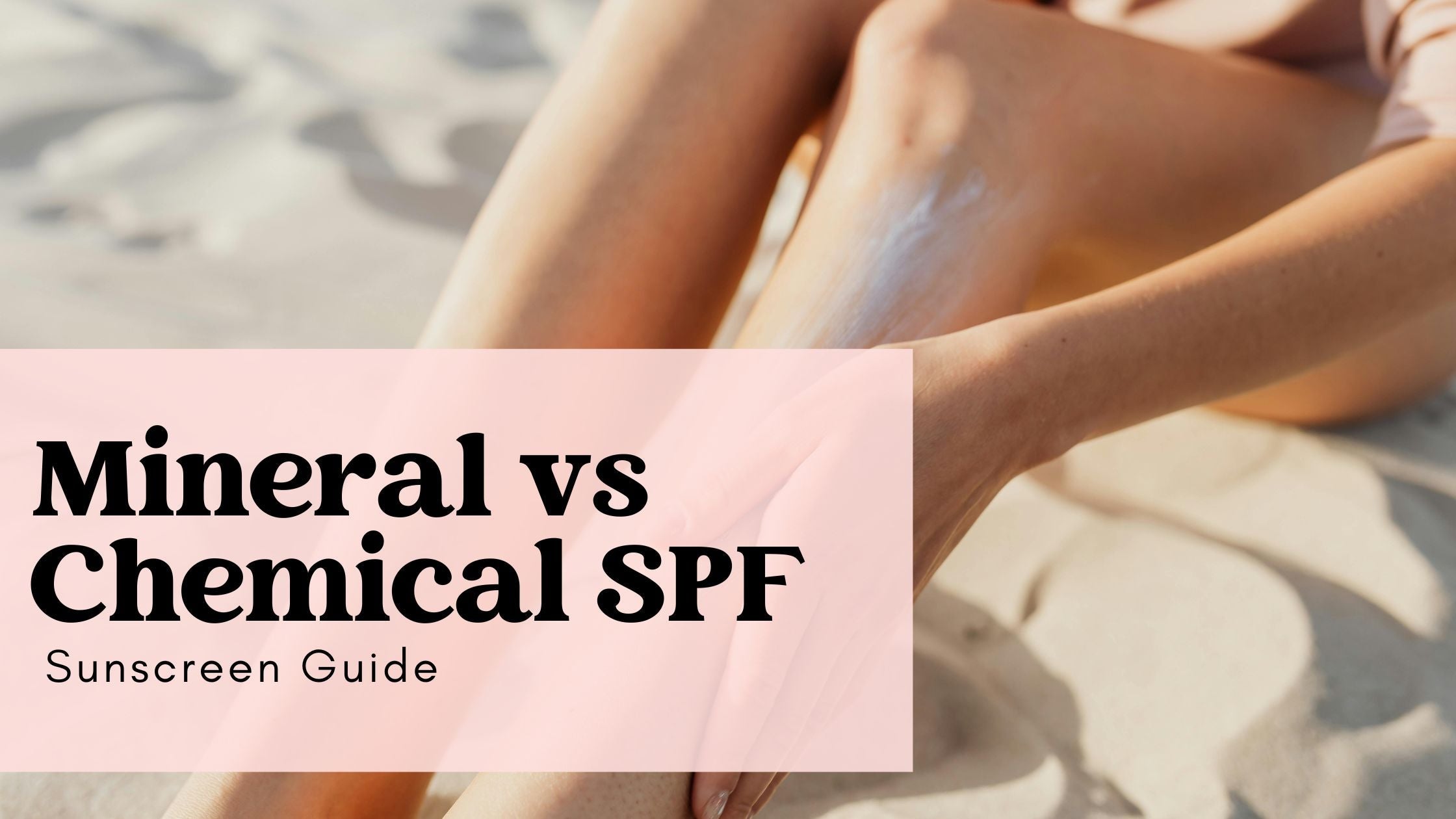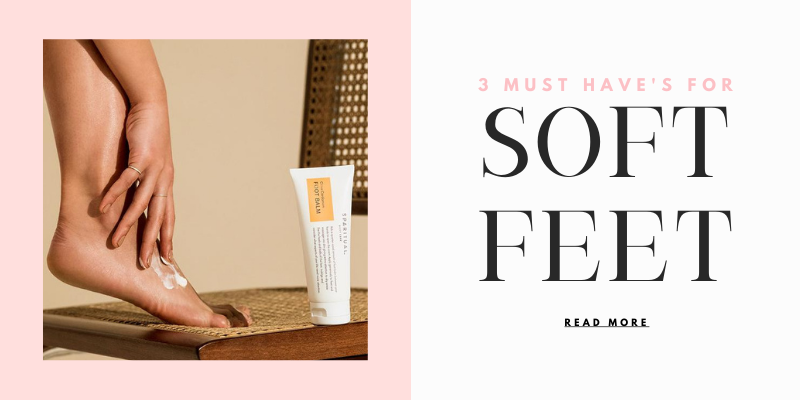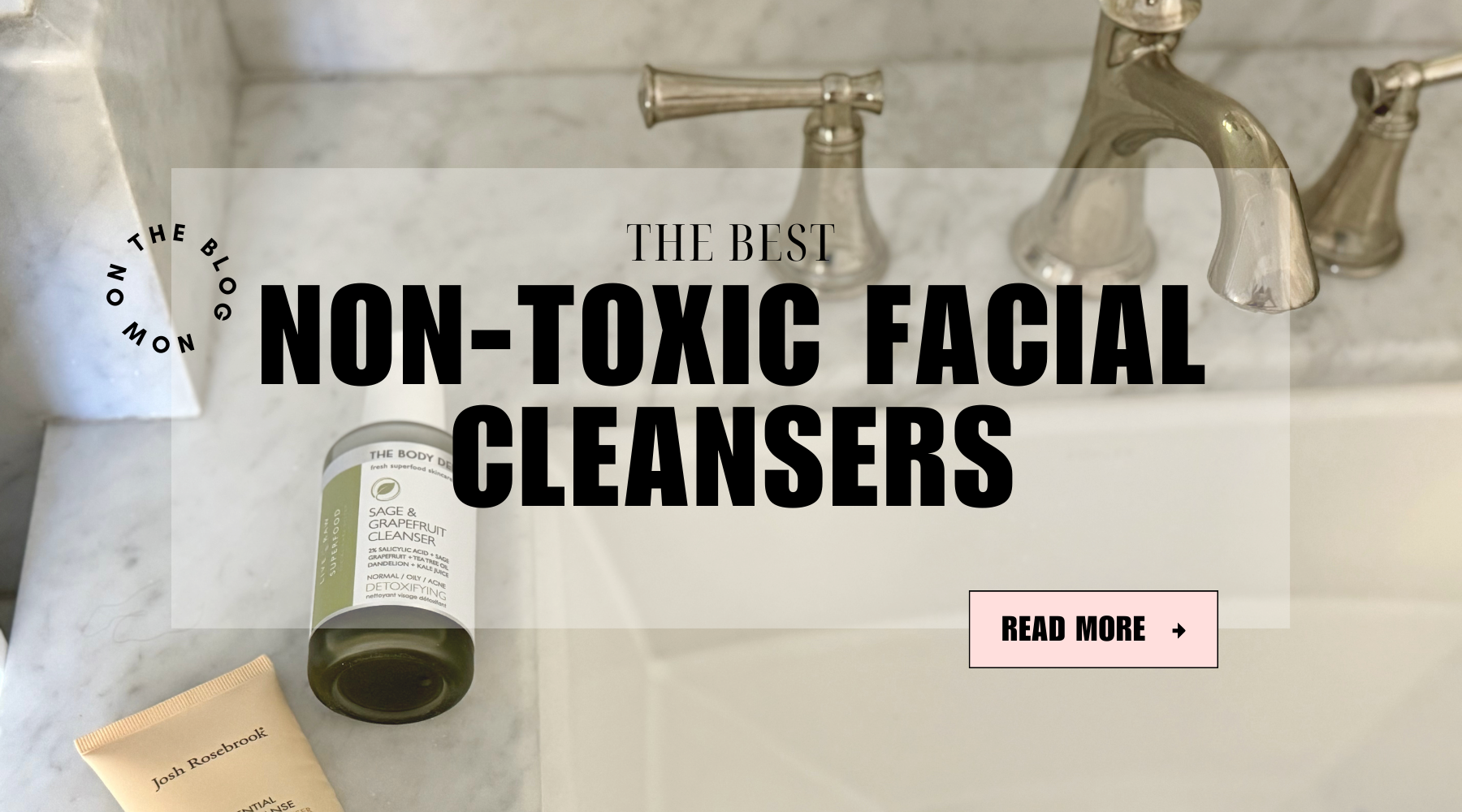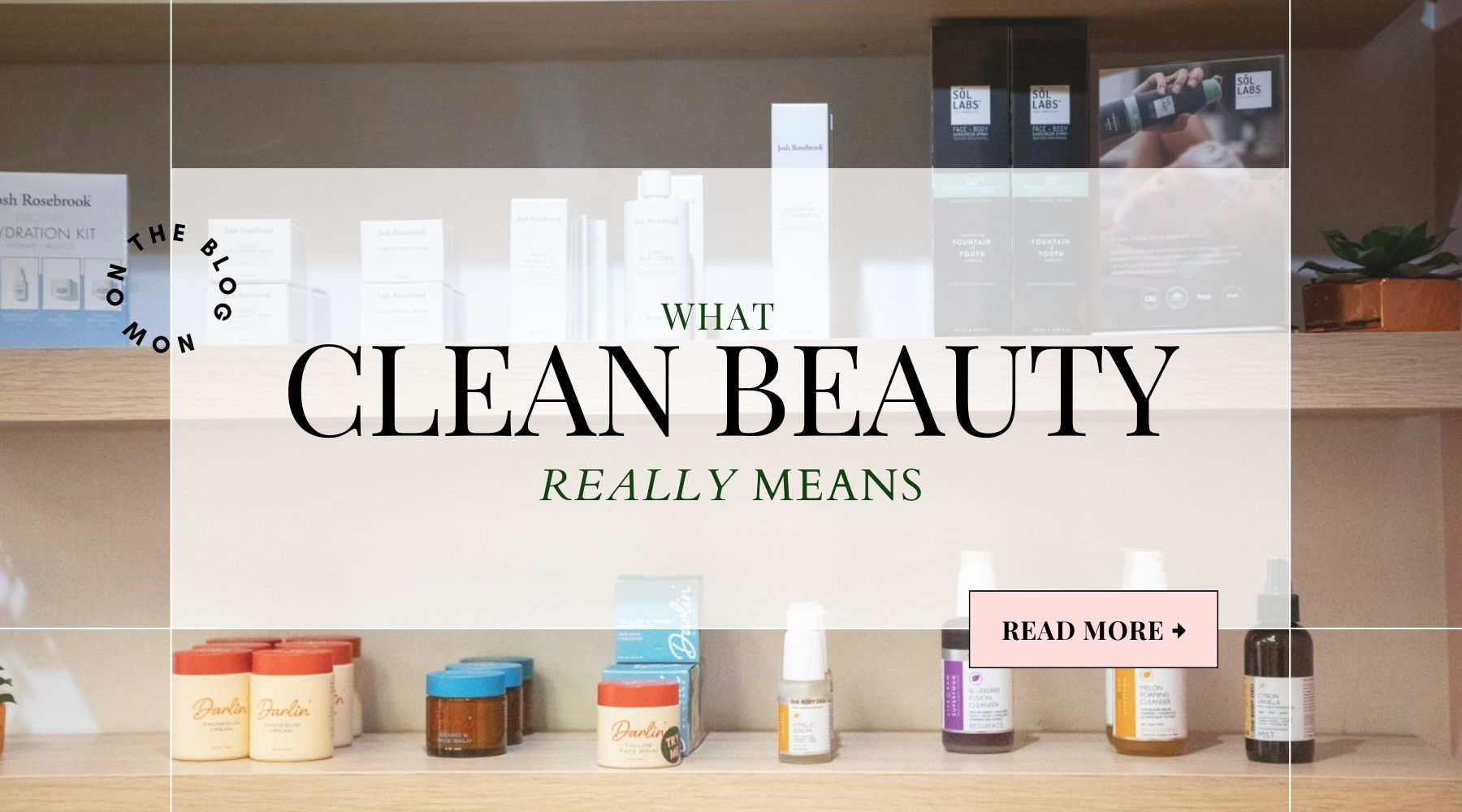Mineral vs. Chemical SPF: Why Choosing the Right Sunscreen Matters

Keeping your skin protected from the sun is one of the best things you can do for healthy, glowing skin. But here’s the thing — not all sunscreens are created equal. Understanding the difference between mineral (also known as physical) and chemical sunscreens can help you make the best choice for your skin health, your lifestyle, and even the environment.
If I had to share just one tip for maintaining beautiful, healthy skin, it would be this: never skip your SPF. Prevention is truly the foundation of a great skincare routine.
But I get it — sunscreen is also one of the number one topics I'm asked about. With so many options out there, it can feel overwhelming to know which formulas are safe, effective, and truly good for your skin (and the planet). That's exactly why I've spent so much time researching and curating the very best clean, natural SPFs — products you can feel confident choosing for yourself and your family.
What Is the Difference Between Mineral and Chemical SPF?
Mineral (Physical) Sunscreen:
- Uses natural minerals like zinc oxide and titanium dioxide as active ingredients.
- Sits on top of the skin and physically reflects UVA and UVB rays.
- Provides immediate protection after application.
- Less likely to cause irritation, making it ideal for sensitive skin.
- Often reef-safe and eco-friendly.
Chemical Sunscreen:
- Uses synthetic compounds like oxybenzone, avobenzone, or octinoxate.
- Absorbs into the skin and chemically absorbs UV radiation, converting it into heat.
- Needs about 15-30 minutes after application to be effective.
- Can cause irritation or allergic reactions for some people.
- Some ingredients have been linked to environmental harm, particularly coral reef damage.
Why Mineral Sunscreen Is the Better Choice
- Safer for Sensitive Skin: Less likely to cause stinging, redness, or allergic reactions.
- Immediate Protection: No waiting time needed—perfect for on-the-go lifestyles.
- Reef-Friendly: Helps protect ocean ecosystems when swimming outdoors.
- Non-Toxic: Cleaner ingredient lists without questionable chemicals.
- Physical Barrier: Reflects UV rays rather than absorbing them, reducing potential heat buildup in the skin.
Choosing a mineral sunscreen means prioritizing both your skin's health and the environment.
The Environmental Impact of Chemical Sunscreens
Research shows that several chemical sunscreen ingredients, such as oxybenzone and octinoxate, can contribute to coral bleaching, harm marine life, and damage delicate reef ecosystems. Studies from organizations like the NOAA Coral Reef Conservation Program and Stanford University have linked these chemicals to coral reef decline. As a result, places like Hawaii have even banned certain chemical sunscreens to protect their ocean habitats.
Choosing a reef-safe mineral sunscreen isn’t just better for your skin—it’s a small step toward protecting the world’s oceans too.
Potential Health Concerns Linked to Chemical Sunscreens
We're learning more every day, and recent research is showing that chemical sunscreens might be doing more harm than we once thought—especially when it comes to our health:
- Systemic Absorption and Hormonal Disruption: Studies, including one from Environmental Health Perspectives, show that ingredients like oxybenzone can be absorbed into the body and act as endocrine disruptors, potentially affecting hormone balance.
- Neurotoxic Effects: Research suggests that some chemical UV filters, including benzophenone-3 (oxybenzone), may cross the blood-brain barrier and impact neurological development (Environmental Health Perspectives).
- Allergic Reactions and Dermatitis: Ingredients like oxybenzone are associated with allergic contact dermatitis and photoallergic reactions (NCBI).
- Potential Reproductive and Developmental Effects: Animal studies have found that chemical UV filters may contribute to developmental changes, including altered mammary gland development and reduced sperm production (PMC Study).
Given these findings, many health experts recommend opting for mineral sunscreens as a safer, more natural alternative.
Our Mineral SPF Picks for Every Skin Type and Texture
At Hey Bella, we carefully curate mineral SPFs that cater to different skin needs. Here's a quick guide:
For Sensitive or Redness-Prone Skin: Earth Harbor Sheer Mineral Sunscreen SPF 30
- Lightweight, non-nano zinc oxide.
- Sheer application with no white cast.
- Soothing ingredients like aloe and green tea.
For Normal to Combination Skin: The Body Deli Solar Day Cream
- Lightweight daily moisturizer with zinc oxide for natural sun defense (equivalent to SPF 15).
- Absorbs quickly without greasiness.
For Dry or Mature Skin: Suntegrity 5-in-1 Tinted Sunscreen Moisturizer SPF 30
- Mineral-based broad-spectrum protection.
- Provides hydration, a hint of coverage, and a dewy finish.
For On-the-Go, Full Body Protection: Sol Labs Mineral Body Sunscreen SPF 50
- Lightweight, water-resistant, and reef-safe.
- Broad-spectrum non-nano zinc oxide.
- Perfect for all-over daily wear, beach days, and outdoor adventures.
FAQ: What Ingredients Should I Avoid in Chemical Sunscreens?
When shopping for sunscreen, it’s important to read the labels carefully. Many chemical sunscreen ingredients have been linked to skin irritation, hormone disruption, or environmental harm (especially to coral reefs and marine life).
Here’s a list of chemical SPF ingredients to avoid:
- Oxybenzone
- Octinoxate
- Octocrylene
- Homosalate
- Avobenzone
- Octisalate
- Ensulizole
- Sulisobenzone
- PABA (Para-aminobenzoic acid)
- 4-Methylbenzylidene Camphor
- Mexoryl SX (Ecamsule)
When in doubt, look for mineral sunscreens that use non-nano zinc oxide or titanium dioxide instead. These offer clean, effective, reef-safe protection without the concerns linked to chemical filters.
Final Thoughts
Choosing a clean, mineral sunscreen is a simple switch that can make a huge impact on your skin health and the planet. Whether you need something lightweight, hydrating, tinted, or sport-ready, we've got you covered—literally.
Ready to glow safely? Shop our full collection of clean, reef-safe sunscreens here!





Comments